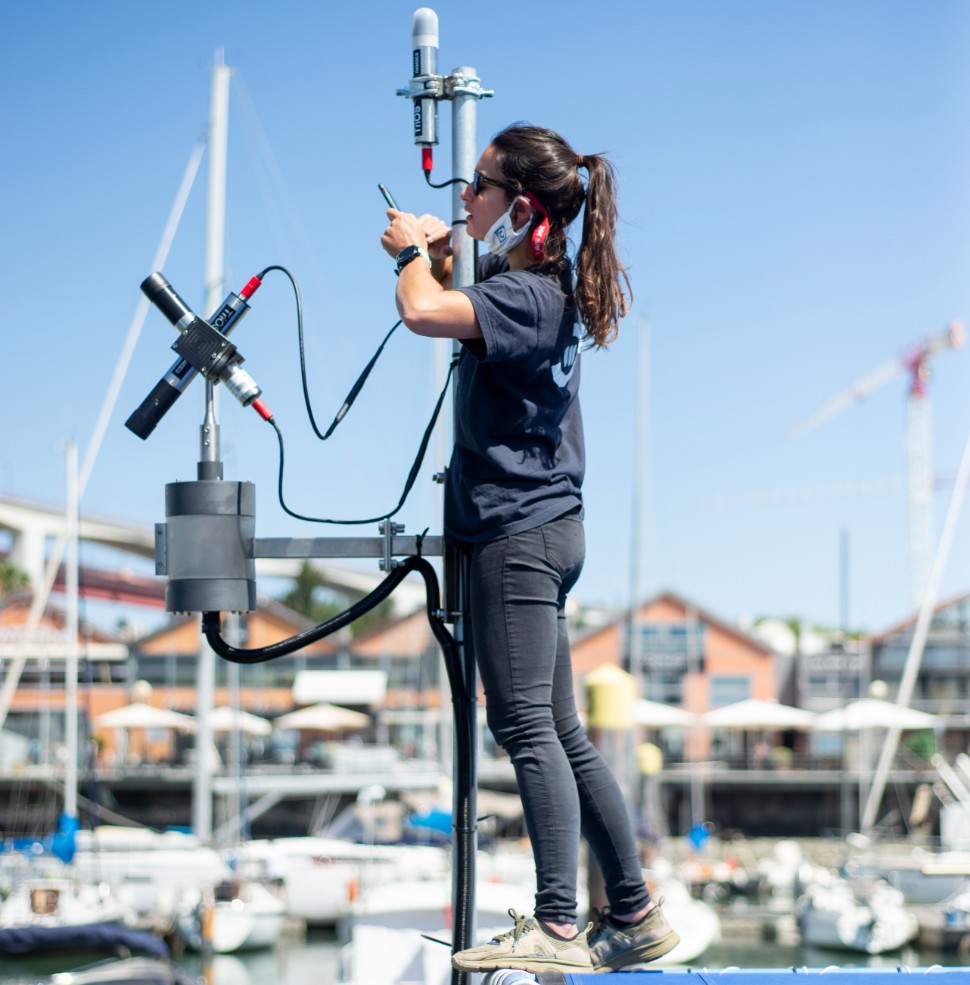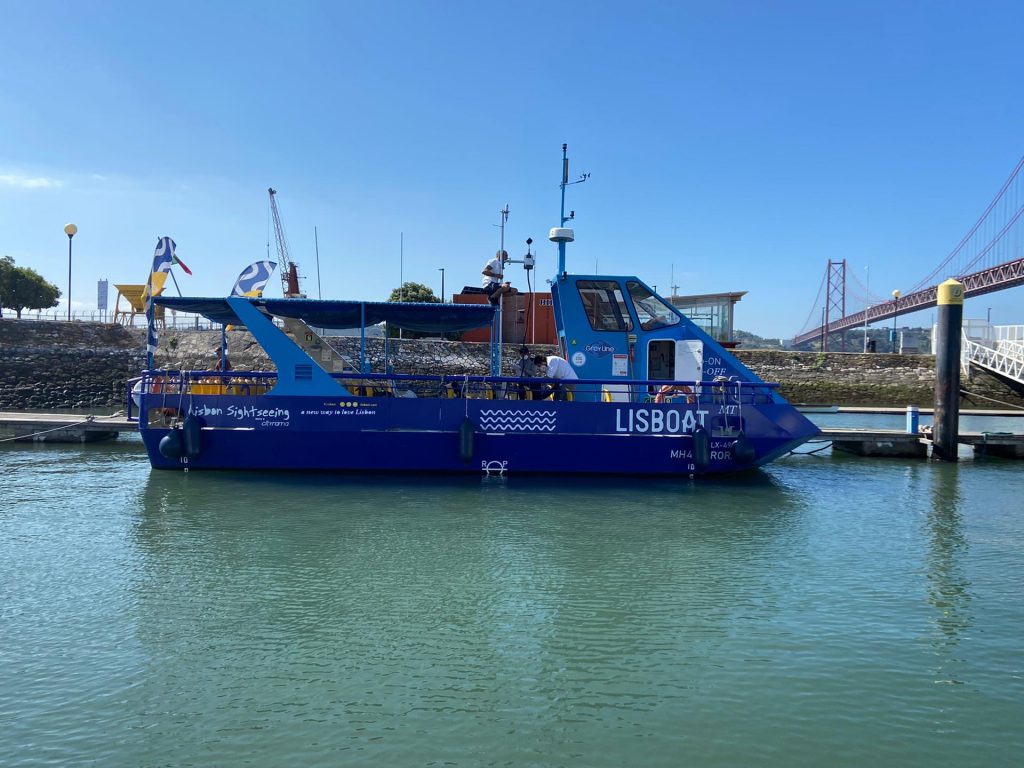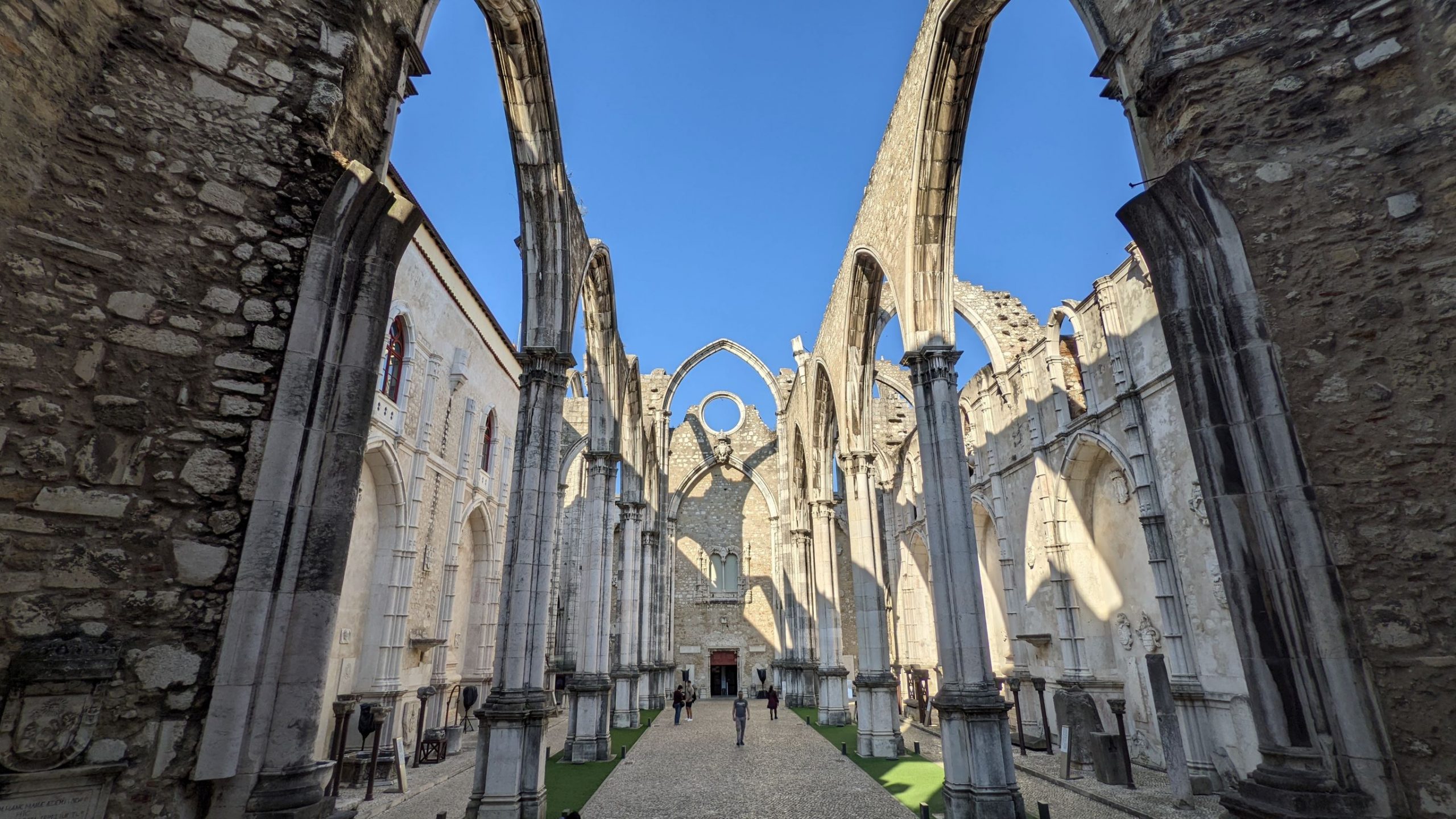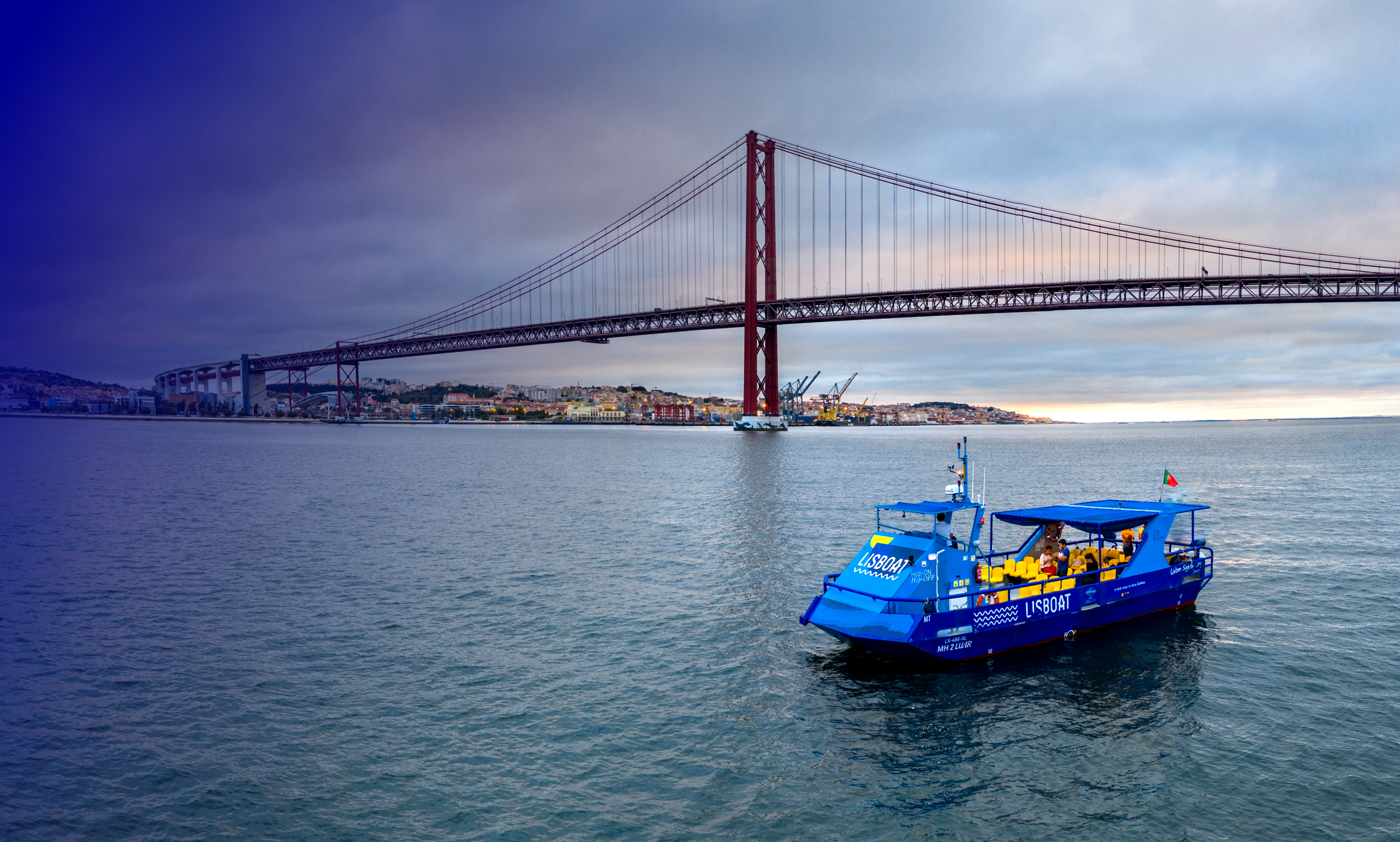Lisboat collaborates in scientific study in the Tagus River

Lisboat is helping to monitor the water quality of the Tagus River through a collaboration with researchers from the University of Lisbon. The partnership is part of the CERTO project (Copernicus Evolution - Research for harmonized and Transitional water Observation), a EU initiative to study the estuaries of several European rivers.
To do so, PHD student Giulia Sent took advantage of the company's boats to install radiometers aboard. The instruments record the spectral signature of the water surface, an important parameter in environmental studies because it is directly related to the concentration of microalgae or sediments present in the water. The high frequency of the Lisboat trips around the inlet channel of the Tagus estuary allows for the collection of a significant amount of observations,
These So-Rad radiometers have three sensors that measure the light reflected of the water and incoming sunlight. The data is then cross-referenced with images from satellites orbiting the Earth at an altitude of 1000km. Results are a great help for oceanographers and other entities involved in the monitoring and treatment of the waters of the Tagus River, as well as other European rivers, lakes and seas.
The preliminary results of the investigation in Portugal were presented by Giulia Sent at the National Copernicus Conference, in Évora, in March.
On the CERTO project’s official website, it can be read that “water quality is a worldwide problem that affects food production, industry, the environment, reproduction and, ultimately, human well-being.” The project is funded by the European Union under the Horizon 2020 programme.

Back to top


